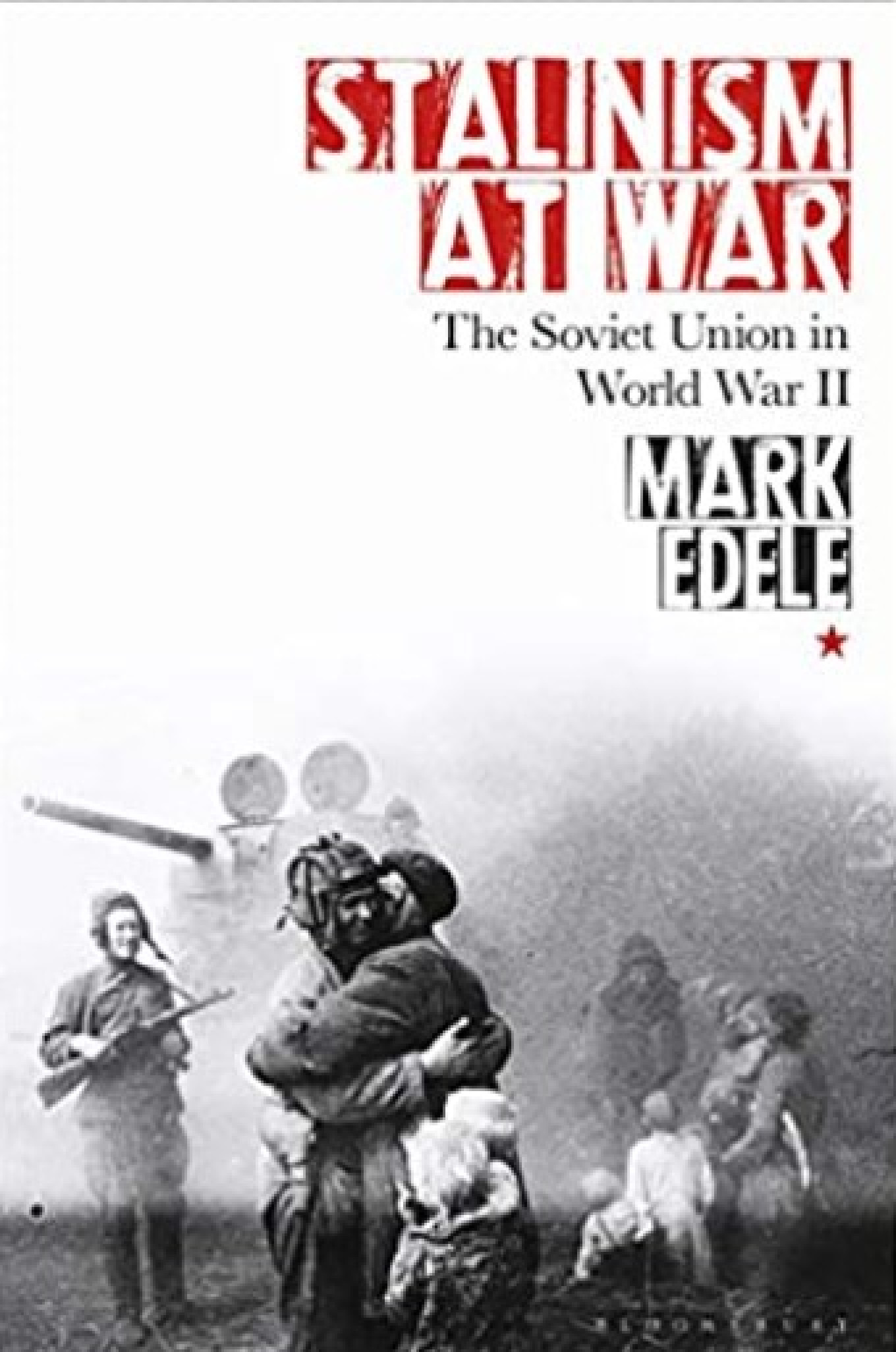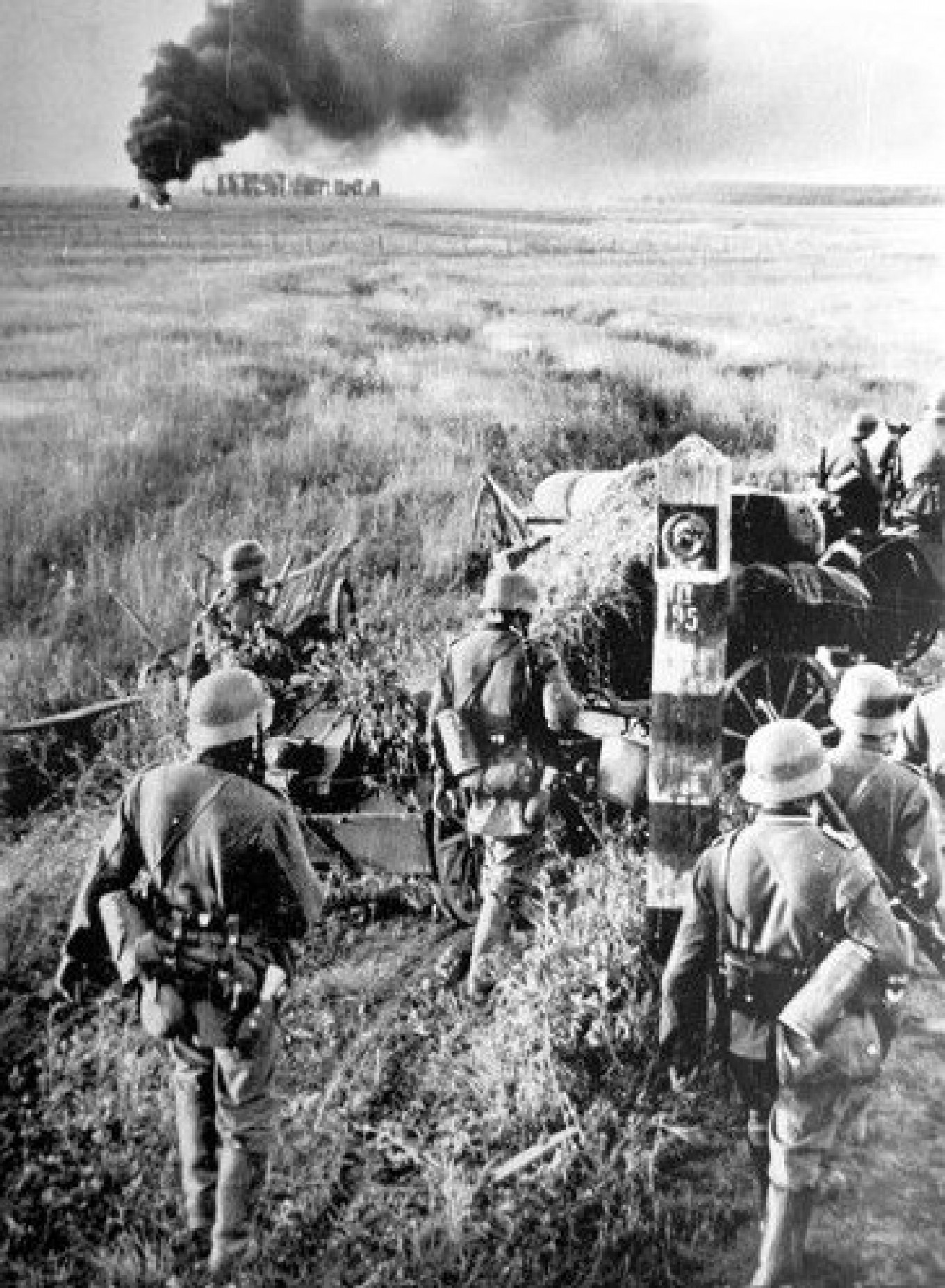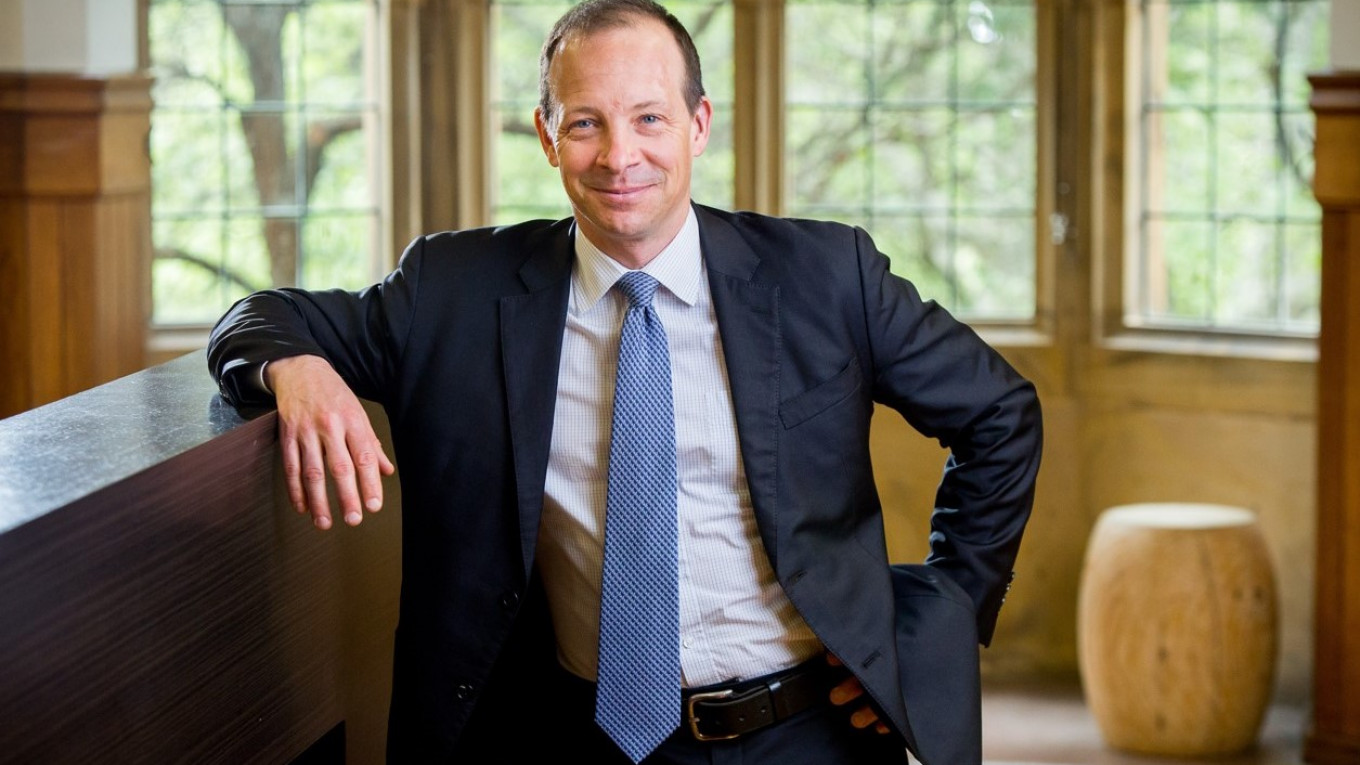The Soviet Union’s successful war against Nazi Germany is hardly an under-researched subject. The literature on it is so rich and expansive as to make it difficult to say anything truly new on the matter. But Mark Edele, a professor of history at Australia’s Melbourne University, manages to do just that in “Stalinism At War,” a short, vividly written account of the conflict that comes equipped with a raft of compelling yet counterintuitive conclusions on the conflict.
Edele keeps his account of the Great Patriotic War fresh partly by calling into question the term itself. Instead of a clean treatment of the 1941 to 1945 bloodletting, we get a sprawling, expansive account of a period that stretches roughly from the mid-thirties and Stalin’s premature rearmament, through to the final burnout of the anti-communist insurgencies in Ukraine and the Baltics in the early postwar years.
Along the way, the stories of the Soviet wars in Poland and Finland, and the drawn-out series of Far Eastern border skirmishes with Japan, are integrated into a wider story of wartime Stalinism rather than cast aside as sideshow curiosities. It’s a refreshing break with tradition given — as Edele is careful to note — the vast numbers who fought and died in these otherwise neglected theaters of conflict.
The material is organized as a succession of chronologically arranged essays, each dedicated to a specific facet of the Soviet wartime experience. It’s a format that sees Edele at his most thought-provoking and provocative.
He argues that Stalin’s pre-war rearmament program both produced vast quantities of subpar war material and gave the Soviet Union a crucial head start in the race towards mass military-industrial production that was to follow; that collectivization undermined, very near fatally, peasant willingness to fight off Hitler’s invasion; and that Stalin’s late thirties diplomatic and military campaign to dissuade the Japanese from attacking in the Far East represents an overlooked success that redeemed his catastrophic failure to foresee Germany’s onslaught in the West.
These subjects could fill (and have filled) tomes. But Edele writes with a lively elegance that makes his narrative a genuine pleasure to read. His reluctance to get bogged down in the minutiae of war or to take sides in obscure historiographical debates keeps the text fresh and readable.
This is, Edele tells us at the outset, a popular history. He delivers on his promise with a journalistic eye for anecdote and color. The chapters are sprinkled with personal stories, ranging from a Soviet Korean deportee in the Far East who eventually achieves his wish of enlisting in the Red Army to force the Japanese from his homeland, to an idealistic left-wing Jew in occupied Poland, who is swept up in the chaos of Operation Barbarossa. What they deliver is the richly human story of an inhuman conflict, masterfully told and compelling reinterpreted.
"Stalinism At War: The Soviet Union in World War II"

From Chapter 4: Armageddon, 1941–2
Chaos
‘Lenin left us a great legacy’, Stalin fumed, ‘and we – his heirs – we have shat all over it!’ It was a little over a week after the Germans had attacked without warning or declaration of war. From the early hours of 22 June, Hitler’s strike force had overwhelmed Soviet defences and advanced in three prongs deep into Soviet territory. Army group North was on the way to Leningrad, Army Group Centre motored towards Moscow and Army group South advanced towards Kyiv. On the day of Stalin’s outburst, Hitler’s Panzer reached the outskirts of Lviv in the South and controlled the region south of Minsk in the middle. Army group North stood deep in Lithuania. But Stalin had no clear sense of what was going on at his western front. He had met with his closest circle to discuss the situation: Viacheslav Molotov, Georgy Malenkov, Anastas Mikoian and Lavrenty Beria. A phone call to the Commissariat of Defense did not lift the fog.
Hence Stalin had decided to pay the soldiers a visit. The meeting with Semyon Timoshenko, Nikolai Vatutin and Georgy Zhukov was tense. Stalin lashed out at his general staff for not knowing what happened at the frontline. Zhukov left the room in tears. ‘Clearly, it was only now that Stalin really understood how serious his miscalculations had been regarding the likelihood, the timing, and the consequences of an attack by Germany and its allies’, reflected Mikoian later.

At the frontlines, chaos reigned. Michael Goldberg had awoken on 22 June to the thunder of bombing raids on Pinsk. When the family heard Molotov’s speech on the radio, announcing that Germany had attacked, his father had few illusions about the fate of Jews: ‘That will be the end of us.’ Michael joined up, only to find himself in a school building waiting for further instructions. ‘Suddenly, we were awakened by an alarm. When we ran outside, we saw the western sky aflame, and heard explosions.’ The draftees, still in civilian clothes, were ordered to march east into the night. In the morning, the unarmed men came under fire but managed to link up with a column of motorized sailors. ‘They gave us guns and together we destroyed the German force.’ Eventually, they made it to Lunietz where they were stationed at the train station, a target for enemy air strikes. ‘By the end of the day, we suffered our first attack from the German planes, with no place to hide. I witnessed a massacre. This was my first war experience.’ The alleged attack on Pinsk which had prompted their march east had been a false alarm (a military base had been bombed by German planes). They were sent back in cattle cars, dislocated in an old church in town, finally given uniforms, but otherwise neglected. ‘We had nothing to do and there was still no leadership or training.’ Soon, the remaining officers ran away, leaving the recruits rudderless. Seeking instructions from the town’s party leadership only yielded the information that soon the town would be under German occupation. Left to their own devices, most of the soldiers returned to their families. Only twenty-six ‘hard-core communists’ remained. Goldberg, after some wandering about trying to connect with his family, was arrested as a deserter, liberated after the intervention of the local party leader and, after a conference with his father, returned to these remnants of his unit. His father had convinced him to leave with the army ‘as he was sure that due to my political record I would be one of the first to be hanged by the German invaders’. This advice reflected the widespread ‘naïve attitude of the townspeople who believed that although the political activists were in danger, the average citizen was not’. Goldberg and his comrades then marched across the bridge out of town, which was blown up behind them.
What followed was a nightmare. After a night of marching, the soldiers found themselves on a road ‘filled with hundreds of civilian draftees who had left town before us from different mobilization points’. As the sun rose, the heat increased. It would be a hot day without access to drinking water. German planes controlled the skies and swooped down on the marchers to machine gun them at will. The groups disintegrated into small gaggles. Goldberg was in a group of five.
By nightfall, they reached a village and managed to buy bread and milk and negotiate shelter. Goldberg suffered from blisters on his feet. The pain kept him awake and he left the hut to catch some air.
I then overheard a conversation among several farmers conspiring to later kill the Jewish Communists because they probably carried gold with them! This deed would also earn them commendation from the advancing Germans. I immediately awoke my friends with this news and in the middle of the night we again continued our journey. This episode was another blow to my belief in humans; these farmers were the kind of people who had lived side by side with us for hundreds of years.
Eventually, the stragglers were collected by one of the few remaining officers and sent to a railway station to be shipped east. ‘We were loaded on cattle car trains, 50-60 persons to a car and started on a long journey without any provisions or sanitary facilities.’ Soon, the echelon had to change direction, as German forces had cut behind its path. The train then stood for days at a station, constantly harassed by Luftwaffe attacks. ‘Thus’, Goldberg mused, ‘many of the draftees never got a chance to par ticipate in the war’. Eventually, the survivors were brought to Orel. Two more weeks of pointless waiting followed, before they were sent to a military training camp in the woods. ‘There were no facilities. Our only shelter were the trees.’ Rations consisted of smoked herring and black bread. Many were still in civilian clothes. Nobody had a change of underwear and they had not washed since leaving Pinsk. Air attacks resumed and the draftees had nothing to defend themselves against the menace from the skies.
Labour army
Eventually, the soldiers from the former Polish regions were evacuated east in ‘our old friends, the cattle car trains’, where they joined other deportees. ‘I discovered people of different nationalities; Polish, Ukrainian, and Germans born in the Soviet Union, where their families had lived hundreds of years. We figured out that we were all people considered untrustworthy by the Soviet regime.’ What he saw during the travel through the old Soviet Union destroyed whatever illusions the young communist had left. ‘I discovered the poverty and the terrible conditions of the people in the areas we passed through . . . . They looked like people living in times of centuries past, both in economic and cultural terms. I was shocked at the poverty that still existed so many years after the Revolution.’ Goldberg and his comrades travelled for weeks, ‘filthy and hungry, fed on rations insufficient for survival’, and suffering from a variety of ailments. Finally, they disembarked in Izhevsk in northern Russia, where the soldiers were assigned to the labour army.
The labour army was a ‘peculiar phenomenon’ which combined ‘the mobilization of men and women through the military enlistment offices with militarized formations organized according to a three-tiered structure (labour detachment, labour colony, labour battalion).’ It combined ‘elements of military service, productive labour, and a Gulag-like detention regime’. Such militarized labour was used for contingents deemed suspicious: Soviet Germans, Romanians, Italians, Finns, Chinese, Koreans, Greeks, Kalmyks and Crimean Tatars were among them, as were many from the western borderlands, altogether some 400,000 people.
Jews from the newly annexed regions belonged to this category between 1941 and 1943. Living in tents in the woods, Goldberg’s unit had to build the new factories which would be supplied with the evacuated equipment and workforce from the western edge of the Soviet empire. During their long and arduous workdays they also built their own ‘homes’ – the ubiquitous zemlianki, ‘small underground huts’, which we have already encountered during the Korean deportations of 1937 and will see again and again in this war. Food was terrible and insufficient. Many swelled from hunger. ‘The work was very hard and we were hungry’, reported a Bessarabian Jew who was sent to work in a munitions plant in Cheliabinsk. ‘We were all sick with malaria, but you had to continue working.’ Mortality was high among the labour-soldiers: in 1942, nearly 11 per cent, or 11,874 human beings, died; even with improving conditions in 1944 this number still stood at 2,832 or 3 per cent.
Note: For ease of reading, footnotes have been deleted from this section.
Excerpted from “Stalinism at War: The Soviet Union in World War II,” by Mark Edele, published by Bloomsbury Academic. Copyright © 2021 Mark Edele. Used by permission. All rights reserved.
For more information about Mark Edele and his book, see the publisher's site.
A Message from The Moscow Times:
Dear readers,
We are facing unprecedented challenges. Russia's Prosecutor General's Office has designated The Moscow Times as an "undesirable" organization, criminalizing our work and putting our staff at risk of prosecution. This follows our earlier unjust labeling as a "foreign agent."
These actions are direct attempts to silence independent journalism in Russia. The authorities claim our work "discredits the decisions of the Russian leadership." We see things differently: we strive to provide accurate, unbiased reporting on Russia.
We, the journalists of The Moscow Times, refuse to be silenced. But to continue our work, we need your help.
Your support, no matter how small, makes a world of difference. If you can, please support us monthly starting from just $2. It's quick to set up, and every contribution makes a significant impact.
By supporting The Moscow Times, you're defending open, independent journalism in the face of repression. Thank you for standing with us.
Remind me later.







